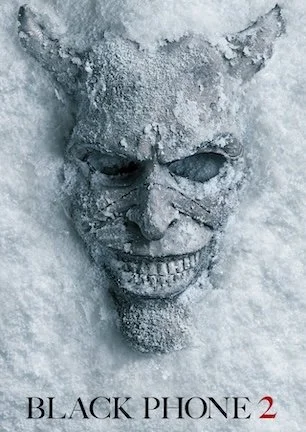Studio: Lionsgate
Director: Ole Bornedal
Writer: Juliet Snowden, Stiles White
Producer: Sam Raimi, Robert Tapert, J.R. Young
Stars: Jeffrey Dean Morgan, Kyra Sedgwick, Madison Davenport, Natasha Calis, Grant Show, Matisyahu
Review Score:
Summary:
A young girl becomes possessed after opening an antique box that imprisoned a dangerous entity.
Review:
The most intriguing aspect of “The Possession” is that it is the only horror film I know of that eschews the Christian mythology behind spiritual possession for a haunting instead based upon Jewish folklore. How does “The Possession” differentiate itself from its gentile brethren? The demon is now called a dibbuk. The Bible is swapped for a Torah. And instead of a priest performing an exorcism, there is a rabbi performing an exorcism. Right. It turns out that the best way to rid someone of an evil spirit is essentially the same no matter what you think about Jesus. How do you say, “the power of Christ compels you” in Hebrew?
Hyperbole aside, there is nothing specific about “The Possession” that can be called out as particularly bad. Perhaps the worst thing to be said about the film is that it is basically a rehash of every other demonic possession story trussed up in Semitic references to give it the appearance of something original.
Christian demons vomit ectoplasm. Jewish dibbuks vomit butterflies.
Clyde (Jeffrey Dean Morgan) tends to his two daughters on weekends while his ex-wife Stephanie (Kyra Sedgwick) plays house with her new boyfriend. The youngest daughter, Em (Natasha Calis), has the misfortune of opening an intriguing box purchased at a yard sale. That act casts her as host to a dibbuk that wreaks havoc on her family until a rabbi’s son (Matisyahu) is enlisted to help banish the evil spirit.
In theory, the switch to Judaic mythology should have brought a unique take to a familiar plot. In practice, “The Possession” ends up being a remake of several other horror films all rolled into one, albeit a competent one. Moths infest the home in much the same way as the flies in “The Amityville Horror.” The possessed girl’s behavior increasingly frightens her family in the same manner as the possessed boy from “The Haunting in Connecticut.” Dad demands that the demon take him instead of the little girl, just as Father Karras did in “The Exorcist.” There are even well worn tropes of a knowledgeable old man and a library research montage to round out the necessary exposition.
The movie never strays from that safe and narrow path. What scares lack in originality they may make up for in creep factor. Frights run the gamut from screamingly painful body contortions to tread lightly “who goes there” moments. Scenes of father and daughter playing shadow puppets or the parents giddily reminiscing over old family videos provide the ready-made emotional connections to make their plight feel all the more tragic. As by-the-book as some of these setups are, they avoid playing as too vanilla thanks to a cast that keeps things relatively engaging.
Kyra Sedgwick is a welcome addition as the girl’s mother, even if she has little to do but emote the stresses brought upon by an absentee ex-husband and a demonically possessed daughter. Matisyahu is so well cast as a rabbi’s son that the uninitiated would never suspect him of being a reggae superstar in his other life. Natasha Calis is also believable and sympathetic as the tortured possessee, although in her most shocked moments the director may have wanted to bring her jaw not so close to the floor.
Just as there is nothing to point to as overwhelmingly bad, there is also not much in “The Possession” to point to as particularly exceptional. In short, “The Possession” hits all of the gates during its slalom run towards modest entertainment, even though points are deducted for an occasional cheat or sloppy technique. It also has the luxury of following in the grooves of every ski that came before it. Okay, maybe that metaphor tried too hard and did not quite succeed. But sometimes it is better to risk the road less traveled and try something different instead of sticking to a beaten path just to hit the finish line. “The Possession” might have aimed for a higher score had it gone off a jump and actually turned in an original trick or two.
Review Score: 50






Watching an Adams Family film can be like watching Doctor Frankenstein furiously flitting about in his lab.